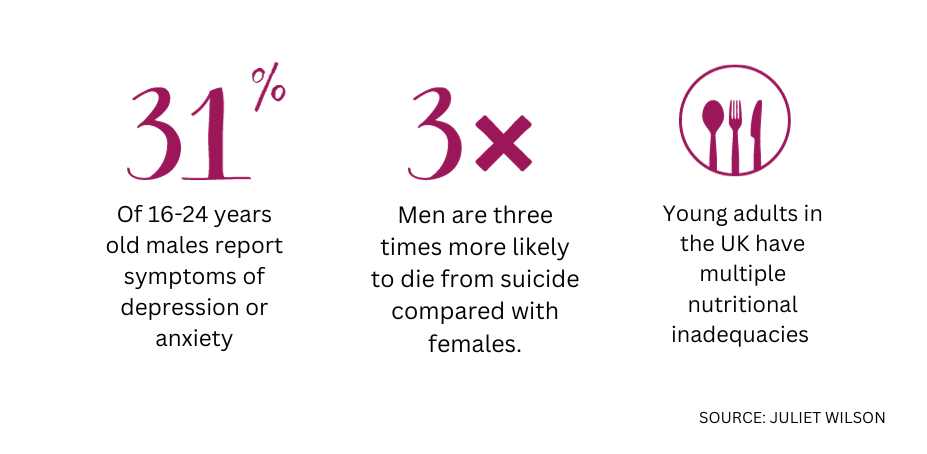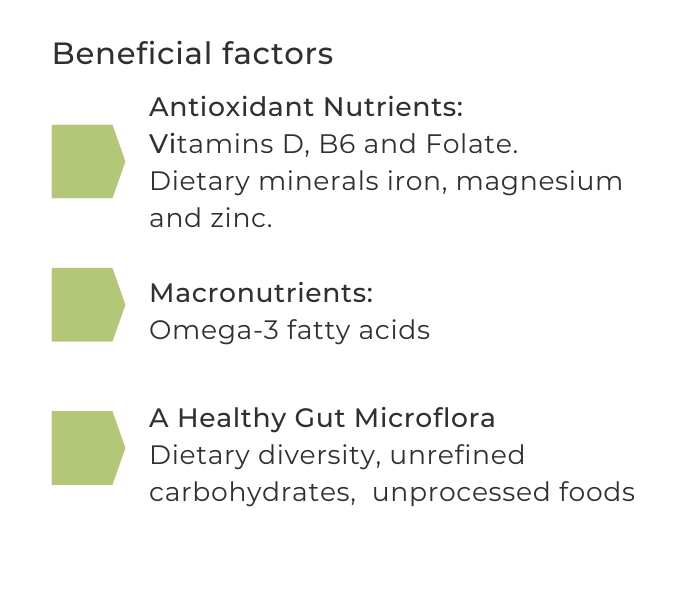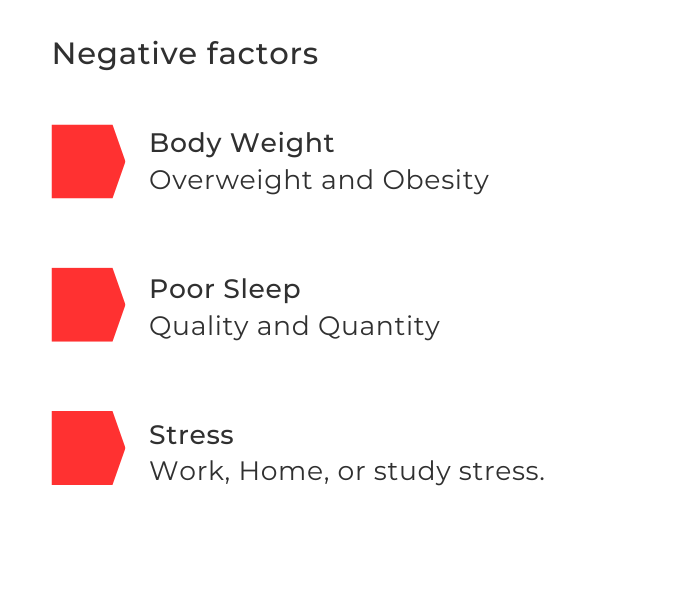It’s Movember, a time when we focus on men’s health. This annual event first started in Australia in 2003, when a group of men decided to grow a moustache to help raise awareness about prostate cancer and depression. Since then, ‘Movember’ has evolved into a global movement, which helps to fund numerous male-oriented research projects and well-being initiatives.

Statistically, men visit their GP a third less than women, although men are not healthier than women. The main reason for the difference is that many men delay getting support for their health concerns. This can mean that all too often treatment is started until there is a serious problem, or it is just too late.
This article highlights some of the health issues that men suffer from at various stages of life, and how nutrition and lifestyle can help manage these largely preventable conditions. Perhaps this increase in awareness will encourage more men to be proactive about seeking help for their health condition.
Movember: The Time to Focus on the Mental Health of Young Men
Young Men often spend time deep in soda cans in their bedrooms, gaming, or talking about ‘beefing up’ at the gym. While these activities are not necessarily wrong choices, they may help create a smoke screen to hide how these young men really feel. Depression statistics for this age group are high, with approximately 9% of young men suffering from anxiety and depression. More distressingly, three-quarters of suicides are among men. It’s not that men are more susceptible to mental health conditions than women, but too frequently they avoid seeking help.
Many men don’t seek advice for a health condition until there is a serious problem.
Help celebrate International Men’s Day on the 19th of November by committing to better health today.
The origins of Movember were to raise awareness of depression in men, so it is only right that we do the same. Diet and lifestyle factors can influence our mental health in two ways: firstly, how the brain functions and, secondly, by supplying neuro-protective nutrients to help limit damage. A growing body of research suggests that specific dietary patterns and a variety of nutrients and behaviours can help to reduce the risk and severity of depression, cognitive decline, and dementia.

So far, research suggests that increased intakes of omega-3 fatty acids, a variety of vitamins and minerals, and a healthy gut microflora can have a positive influence on our brain health. Conversely, poor sleep, being overweight and high stress levels can increase the risk and severity of depression and mental health disorders. Take a look at the summary illustration below.
The Influence of Nutrition and Lifestyle on Depression


Foods With a High Omega-3 Content.

Increasing your intake of omega-3 fatty acids can help support your brain health and decrease the risk of depression and anxiety. Try including some of the following foods into your daily diet.
- Fish: Herring, salmon, fresh tuna and herrings.
- Nuts and seeds: Walnuts, chia seeds, flaxseeds and hemp seeds
- Legumes (beans and peas): soya beans and kidney beans.
- Oils: walnut, rapeseed, canola, hemp oils
Contact Juliet to find out more about how you can boost your mental health or get help for other health conditions. You can head over to the Medical Nutrition page for more information on orders that respond well to nutritional intervention.
See you soon!
Bibliography
ONS (2022)L Leading Causes of Death: 2001 – 2018. REF
NHS DIgital (2022) Statistics on obesity, physical activity and diet. REF
Lassale C, Batty GD, Baghdadli A et al. (2018) Healthy dietary indices and risk of depressive outcomes: a systematic review and meta-analysis of observational studies. Molecular Psychiatry.

